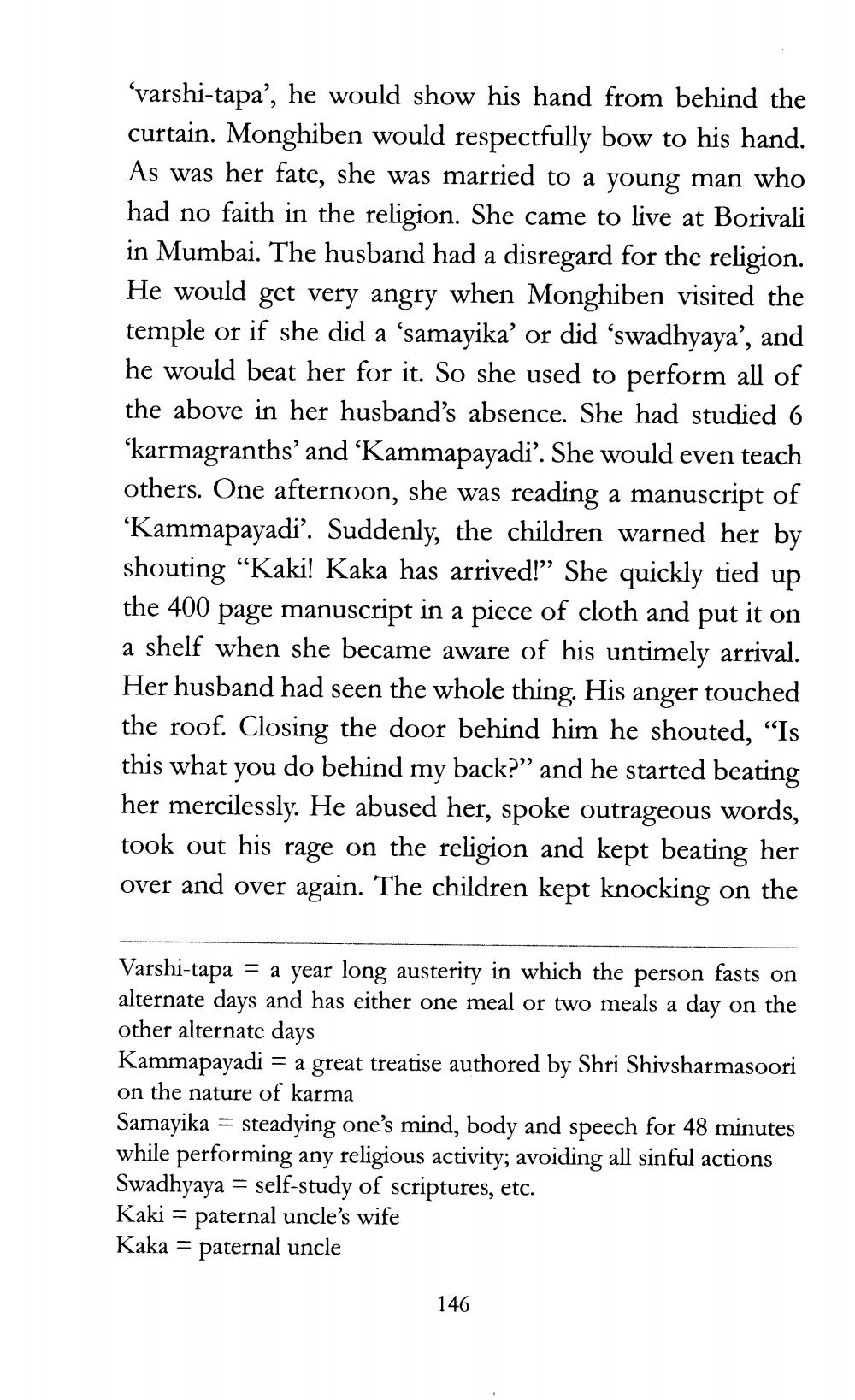________________
‘varshi-tapa', he would show his hand from behind the curtain. Monghiben would respectfully bow to his hand. As was her fate, she was married to a young man who had no faith in the religion. She came to live at Borivali in Mumbai. The husband had a disregard for the religion. He would get very angry when Monghiben visited the temple or if she did a 'samayika' or did 'swadhyaya’, and he would beat her for it. So she used to perform all of the above in her husband's absence. She had studied 6 ‘karmagranths' and Kammapayadi'. She would even teach others. One afternoon, she was reading a manuscript of Kammapayadi'. Suddenly, the children warned her by shouting "Kaki! Kaka has arrived!” She quickly tied up the 400 page manuscript in a piece of cloth and put it on a shelf when she became aware of his untimely arrival. Her husband had seen the whole thing. His anger touched the roof. Closing the door behind him he shouted, “Is this what you do behind my back?” and he started beating her mercilessly. He abused her, spoke outrageous words, took out his rage on the religion and kept beating her over and over again. The children kept knocking on the
Varshi-tapa = a year long austerity in which the person fasts on alternate days and has either one meal or two meals a day on the other alternate days Kammapayadi = a great treatise authored by Shri Shivsharmasoori on the nature of karma Samayika = steadying one's mind, body and speech for 48 minutes while performing any religious activity; avoiding all sinful actions Swadhyaya = self-study of scriptures, etc. Kaki = paternal uncle's wife Kaka = paternal uncle
146




